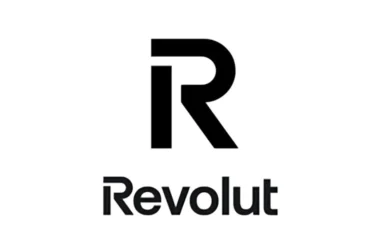The rise of cryptocurrency has brought regulatory challenges for nations worldwide. Among those leading the charge in establishing a regulatory framework is Malta, affectionately known as “The Blockchain Island.”
Since 2018, Malta has led a legislative package aimed at building innovation, safeguarding consumers, and ensuring integrity within the burgeoning cryptocurrency industry.
9.05% Revenue Growth In The Cryptocurrency Market by 2028
The cryptocurrency market in Malta is predicted to have substantial growth in the coming years, with revenue projected to rise from US$6.3 million in 2024 to an estimated US$8.9 million by 2028. These statistics reflect an impressive annual growth rate of 9.05%, highlighting the sector’s potential for expansion.
At present, the average revenue per user in the cryptocurrency market stands at US$67.0 in 2024. While Malta contributes significantly to this global landscape, with promising growth prospects, it’s essential to note that the United States leads in revenue generation, reaching a staggering US$23,220.00 million in 2024.
In the future, more people in Malta are predicted to start using cryptocurrency, reaching around 107,500 users by 2028. This means that a higher percentage of people in Malta will be using cryptocurrency, going up from about 21% in 2024 to nearly 24% in 2028.
3 Acts Define Malta’s Crypto Framework
Malta’s regulatory framework is made up of three acts: the Malta Digital Innovation Authority (MDIA) Act, the Innovative Technology Arrangements and Services (ITAS) Act, and the Virtual Financial Assets (VFA) Act.
Malta Digital Innovation Authority (MDIA) Act
The Malta Digital Innovation Authority Act serves as the cornerstone of Malta’s regulatory infrastructure for the cryptocurrency industry. Its primary objective is to establish credibility for distributed ledger technologies (DLTs) by emphasising internal governance arrangements and ensuring integrity within the sector.
Innovative Technology Arrangements And Services (ITAS) Act
The Innovative Technology Arrangements and Services Act focuses on certifying blockchain-based projects and services. By setting standards for DLTs and regulating cryptocurrency exchanges, this Act builds a secure and innovative environment for the industry to thrive.
Virtual Financial Assets (VFA) Act
The Virtual Financial Assets Act governs virtual financial assets within Malta, specifically targeting Initial Coin Offerings (ICOs), cryptocurrency exchanges, and wallet providers. Through clear guidelines and licensing requirements, this act aims to protect investors, ensure market integrity, and promote a compliant environment for cryptocurrency businesses.
Tax Treatment of Cryptocurrency Transactions
Malta classifies cryptocurrencies as ‘virtual financial assets’ (VFAs), defining them as digital mediums of exchange or stores of value. While capital gains on other assets are generally not subject to specific tax, gains from cryptocurrency trading may be treated as business income and subject to income tax.
Differences Between Activities Based on Cryptocurrencies
In Maltese law, trading, investing, and mining activities are distinguished in terms of cryptocurrencies. Traders engage in frequent transactions for profit, investors hold assets for extended periods, and miners participate in legitimate activities subject to taxation based on the scale and nature of their operations.
Tax Reporting and Compliance
Both companies and individuals in Malta have tax reporting obligations. Electronic corporate income tax returns are available for companies, while individuals with part-time self-employment and employment have specific income tax obligations and deadlines.
Taxation of Capital Gains and Mining Activities
Capital gains from cryptocurrency transactions are subject to tax rates ranging from 15% to 35%, depending on the taxpayer’s residential status. Additionally, mining activities in Malta are taxed at progressive rates, with advantageous tax rates applying to part-time engagements up to specified thresholds.
Crypto Tax Incentives
Malta offers tax incentives to promote the cryptocurrency industry. From income tax exemptions on payments made in virtual currencies to favourable tax rates for mining activities, these incentives reflect Malta’s position as a leading destination for cryptocurrency businesses.
Summary
Malta’s proactive approach to cryptocurrency regulation, coupled with its favourable tax environment, has built its reputation as “The Blockchain Island.” By prioritising innovation, consumer protection, market integrity, and by promising revenue growth in the near future, Malta will most likely continue to attract cryptocurrency businesses and investors seeking a secure and compliant ecosystem.
For any questions regarding this topic and other concerns related to relocating to Malta, feel free to refer to our website.
0% Tax on Crypto?
When you sign up, you’ll receive a 5-part email series packed with insights on Malta’s crypto landscape : from tax rules and residency options to practical tips for investors. Learn how to make the most of your crypto journey in Malta, step by step.







